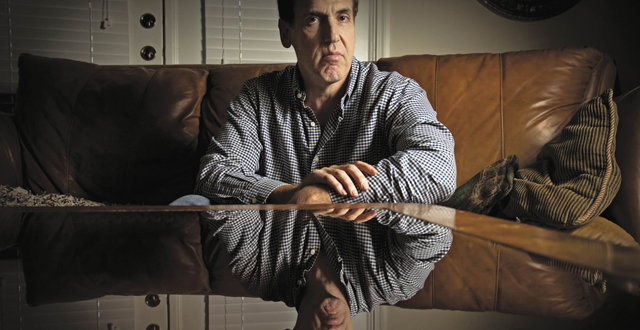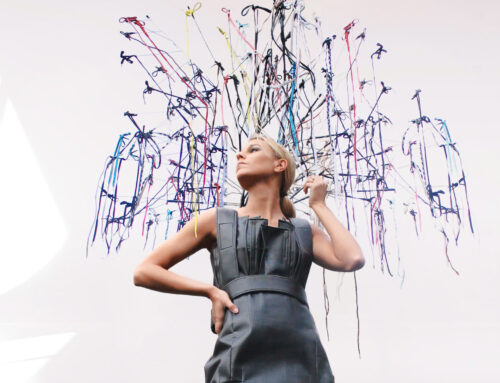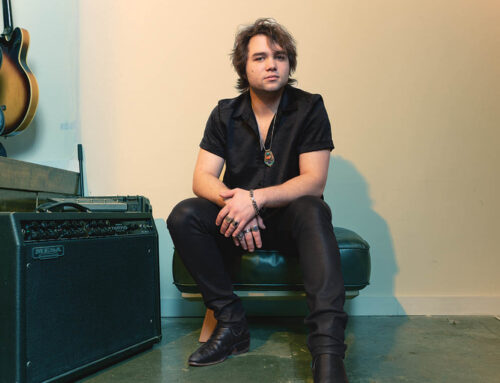Brian Cuban practiced killing himself by sliding an unloaded .45 automatic pistol into his mouth and pulling the trigger.
While high on cocaine, he felt so disgusted with what he saw in the mirror that he decided to email a friend to get the bullets he needed to end his life.
“I was ready to kill myself,” Cuban says.
Today, Brian may be recognized for being the younger brother of Dallas Mavericks owner Mark Cuban, who lives about a mile away from him in Preston Hollow. But for most of his 52 years, Brian Cuban has struggled with body dysmorphic disorder (BDD), a condition that causes people to be so concerned about their own physical appearance that they cannot fully function in daily life.
“Although we are just starting to see people properly diagnosed with BDD, the disorder itself has been around a long time,” says Preston Hollow psychiatrist Dr. Gerald Melchiode.
“BDD is different from narcissism. People with BDD are often late because they are obsessing about what they look like in the mirror. It can be so severe that every time they see their reflection, they stop and worry about how bad they look. It is very serious. People with anorexia, drug addiction, steroid addiction and addiction to plastic surgery are often misdiagnosed, because their underlying condition is BDD.”
Melchiode says that although BDD affects both men and women, there is an added shame for men because it’s socially unacceptable for men to open up about body image.
[quote align=”left” color=”#000000″]“For the three minutes that I was high, I didn’t have BDD.”[/quote]Cuban chronicles what it’s like to be a man living with the disorder in his book, “Shattered Image: My Triumph Over Body Dysmorphic Disorder,” which was released in August.
For Cuban, BDD started in his childhood home in Pennsylvania.
“My mom and I had a difficult relationship,” Cuban says. “She had a difficult relationship with her mom. Her mom would call her fat, and then she called me fat when I was a kid.”
By the time Cuban was 11 years old, he weighed 260 pounds. Along with his mom, gym teachers and classmates constantly commented on Cuban’s appearance, driving him deeper into shame and despair.
Cuban says that the BDD didn’t kick in until his freshman year of college at Penn State. After years of torment in high school, he wanted to start fresh. It was 1979, and Cuban began dieting before moving onto campus. One day, he made eye contact with a girl who he overheard telling her friend that Cuban was ugly. It had a profound impact on Cuban’s self-image, and he quickly spiraled into bulimia.
At the time Cuban felt that the only thing that he could control was his food intake. He was obsessed with not feeling bad about his self-image. He became bulimic for 27 years, and for most of those, nobody knew.
In 1986 Cuban moved to Dallas to practice law, and a year later, he began abusing alcohol, steroids and cocaine. Cuban says he used cocaine because for the few minutes that he was high, he would see somebody in the mirror who was popular, handsome and in shape.
“For the three minutes that I was high, I didn’t have BDD,” Cuban says.
He says that over the years he was a practicing lawyer and a functioning addict, until his worlds started to collide. He made that first suicide attempt in July 2005.
On that day, the friend that Cuban had emailed for bullets became concerned and called Cuban’s brothers. His two brothers immediately took him to Green Oaks psychiatric facility. At the time, Cuban was a practicing lawyer, so he knew what to say to avoid getting committed, he says. Cuban was able to return home that same day.
That summer was not the low point that sent Cuban to recovery.
Within a month he was back on the scene, doing drugs and continuing to hide his BDD from everyone, including his new girlfriend.
The turning point
On April 8, 2008, Cuban went on a two-day bender and blacked out; during that time, he says, he doesn’t remember what happened.
Cuban checked himself into Green Oaks again. Standing in the parking lot, Cuban says, he realized there would be no next time for him. He was scared of losing his girlfriend, but he was even more scared of losing his brothers.
“My dad always told me that women come and go, but brothers stick together,” Cuban says. “I didn’t want my addictions to alienate me from any of the people that I loved.”
[quote align=”right” color=”#000000″]“I didn’t want my addictions to alienate me from any of the people that I loved.”[/quote]The next day, Cuban told his therapist about his suicide attempt. Afterward, he wanted to be honest with his family, so he called his dad and admitted that he had tried to kill himself and needed help.
Cuban’s dad invited him to move in and helped him get back on his feet. Without his girlfriend and his dad, Cuban says, he doesn’t know where he’d be.
Although friends and family declined to be interviewed, Cuban personally reiterated that he wouldn’t have been able to move toward recovery without them.
“The next thing I had to do was go to 12-step, because alcohol and steroid addiction were about to kill me.” Cuban says. “Twelve-step gave me the structure I needed to get sobriety under my belt so that I could start addressing the issues from my childhood. It saved my life.”
Writing about his struggle also played a significant role in Cuban’s recovery. He says that through his writing he was able to release his pain and anger without hurting himself or anybody else.
Once he started writing about his disorder, Cuban realized that he wanted to write a book about BDD that addressed men, since there are “tons of books about female body image, but hardly anything to help men,” he says.
Spreading the word
Today, Cuban’s mission is to open people’s eyes to the seriousness of BDD. After every book signing, Cuban holds a Q&A session to help explain the disorder.
Cuban says he hopes that his book will encourage others to get honest about their addictions, the way he did.
“No matter how low it goes, no matter how bad it gets, just drop that wall for one second, take that little step, and you will not be judged,” he says. “There is a wealth of happiness at the end.”
Brian Cuban’s book “Shattered Image: My Triumph Over Body Dysmorphic Disorder” is available at local bookstores and online.
For more information, visit briancuban.com.







